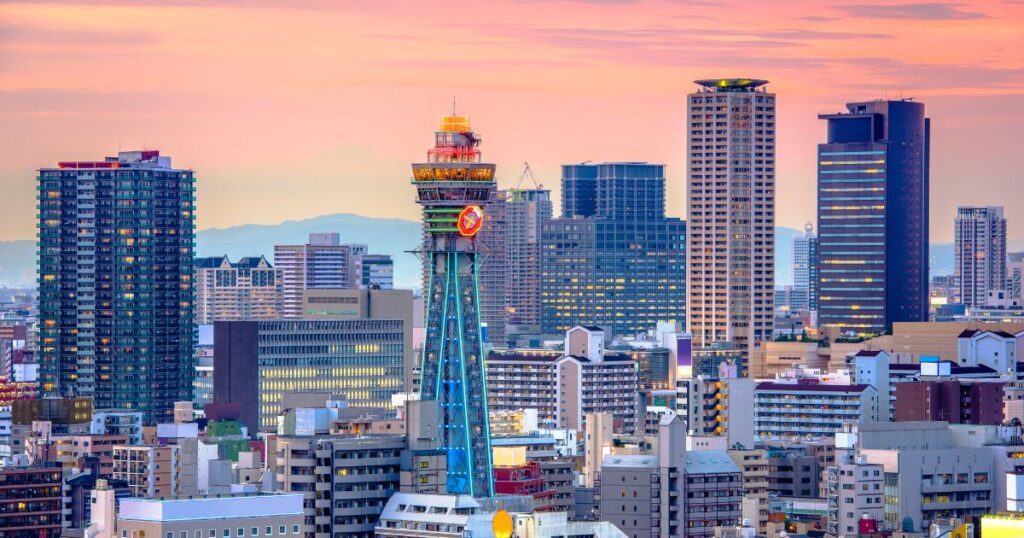With so many places offering digital nomad visas, many people wonder whether there’s a Japan digital nomad visa as well. Unfortunately, the Japanese government has not yet released an official digital nomad visa — but there is an option called the Highly Skilled Professional Visa (HSVP) that facilitates freelancing in Japan.
Below, we’ll go over the HSVP and a few other visa options that allow American expats to work and live in Japan. Before we dive in, though, let’s take a look at an interesting technicality American freelancers in Japan must navigate.
Freelance work in Japan as a foreigner
While there isn’t a dedicated self-employed visa in Japan, many Americans living there work as freelancers to earn supplementary income when their visa allows it. There are strict rules about freelancing, however.
Generally, foreign nationals with valid work visas can do freelance work, but it’s always a good idea to double-check that both your visa and your employer allow your freelance work activity. Those who move to Japan to teach English via the popular JET program, for instance, are not allowed to moonlight.1
Work visas that do permit freelance work tend to allow holders to freelance as long as the work they do is within the same visa category (e.g., a software engineer could do freelance web development).
Those who want to freelance outside of their work category will need to apply for a Permission to Engage in Activity other than that Permitted under the Status of Residence Previously Granted. This requirement also applies to students seeking to pick up freelance work.2
How to live as a freelancer in Japan

As mentioned earlier, there is no dedicated self-employed visa for Japan, but there is a workaround.
Those who pick up freelance work in Japan while on a different work visa and want to transition to a different visa associated with their freelance activity can apply for a general work visa sponsored by a client based in Japan.3
Because an individual must already hold a visa when they apply to switch, the process is technically classified as a visa renewal. The renewal process for a Japan visa for freelancers includes:4
- Gathering required visa applicant documents
- Providing proof of annual income that shows you earn about ¥3,000,000 per year (about $20,600 USD) from a Japan-based employer
- A university degree related to your freelance work or 5 years of experience directly related to your freelance work. Note: Proof of experience may include your resume and previous contracts or Certificates of Employment (CoE) from clients
- A copy of your completed notification for starting or ending a personal business
- Proof that you have been paying your Japanese taxes, such as copies of your tax return
- Information from your sponsoring client/customer. This information includes:
- A signed contract
- A completed CoE application form
- An engagement letter describing why your services are important to their business
- An official pamphlet or printout of their homepage
- A certified copy of their business registration or their notification for starting or ending a personal business (if you work for another freelancer)
- Their latest financial statements
- Their last tax return (if the company/client is a registered business)
- Note: You may also need to provide proof of insurance and a sole proprietor form
- Submitting the required documents to your local immigration bureau office
- Receiving approval via post
- Picking up your visa in person
Pro tip:
Remote workers may need to work for a client on-site for a period of time in order to qualify for the visa. (5) After that initial period, you should be able to switch to remote work.
Japan Highly Skilled Professional Visa (HSPV)
This visa category is designed to make it easier for highly skilled foreign professionals to work and live in Japan. The visa is not limited to a specific profession and covers a range of fields including academics, researchers, engineers, specialized technicians, business managers, and more.
The Highly Skilled Professional Visa in Japan is divided into three categories, each with its own criteria and benefits:
- Advanced Academic Researcher: For researchers, scientists, and academics with advanced expertise and achievements in their field
- Advanced Specialized/Technical Professionals: For individuals with advanced skills and extensive experience in fields such as engineering, technology, natural sciences, healthcare, etc
- Advanced Business Management: For individuals in managerial positions with a high degree of responsibility and expertise in business
To qualify for this visa, you must receive a job offer in one of the fields above and reach at least 70 points according to the Japanese Immigration Bureau’s points matrix.
If you qualify for and obtain this visa, you’ll be eligible to receive:6
- An automatic five-year residence visa
- Permanent residency after one or three years of residence in Japan (depending on your specific circumstances)
- An employment visa for your spouse
- Permission to bring your parents or a nanny, provided they meet certain criteria
Developing your business in Japan
Expats living in other countries often pursue entrepreneurial endeavors, as being their own boss gives them greater control over where and how they work. US freelancers in Japan are no exception.
While most Americans working as freelancers in Japan start out as sole proprietors, over time, some may choose to register as a business.
There are four main types of businesses in Japan: Joint-Stock Company (Kabushiki-Kaisha), Limited Liability Company (Godo-Kaisha), General Partnership Company (Gomei-Kaisha), and Limited Partnership Company (Goshi-Kaisha).7
The first two are the most popular, given that they offer limited liability for business owners. Here are a few more details:
- Joint-Stock Company (Kabushiki-Kaisha): An ordinary company with shareholders and directors, roughly equivalent to a corporation in the US.
- Limited Liability Company (Godo-Kaisha): A company with members that own and operate the company, roughly equivalent to an LLC in the US
💰 Earnings callout:
Registering as a business in Japan tends to make sense once freelance income reaches ¥10,000,000 (about $68,600 USD), as it can lead to more favorable tax treatment. However, each situation is unique, and forming a business can be complicated, time-consuming, and expensive. Be sure to discuss with a Japanese accountant knowledgeable about businesses in Japan before you make your final decision.
Business Manager Visa
This visa category is designed for individuals who are planning to establish, manage, or operate a business in Japan. It falls under the broader category of work visas and permits individuals to work in managerial positions or engage in business-related activities.
To be eligible for a Business Manager visa in Japan, you typically need to meet certain criteria, including:
- Proof of a legitimate business plan: You need to demonstrate that you have a viable and well-detailed plan for the business you intend to establish or manage
- Investment or capital requirements: Depending on the type of business, you might need to show a certain amount of capital investment
- Relevant experience and qualifications: You may need to demonstrate your qualifications and experience that make you suitable for the business management role
- Legal requirements: Your business should adhere to all legal requirements and regulations in Japan
- Potential contribution to the Japanese economy: Your business should be deemed to have a positive impact on the Japanese economy, such as creating jobs or contributing to local communities
Self-employment tax in Japan
Japan uses a progressive tax structure, meaning that as your income goes up, so do your taxes. The tax rates in Japan for 2023 in Japanese yen (JPY) are as follows:
| Income | Tax rate | Deduction |
|---|---|---|
| ¥0 – ¥1,949,999 | 5% | ¥0 |
| ¥1,950,000 – ¥3,299,999 | ¥97,500 + 10% of anything above ¥1,950,000 | ¥97,500 |
| ¥3,300,000 – ¥6,949,999 | ¥232,500 + 20% of anything above ¥3,300,000 | ¥427,500 |
| ¥6,950,000 – ¥8,999,999 | ¥962,500 + 23% of anything above ¥6,950,000 | ¥636,000 |
| ¥9,000,000 – ¥17,999,999 | ¥1,434,000 + 33% of anything above ¥9,000,000 | ¥1,536,000 |
| ¥18,000,000 – ¥39,999,999 | ¥4,404,000 + 40% of anything above ¥18,000,000 | ¥2,796,000 |
| ¥40,000,000+ | ¥13,204,000 + 45% of anything above ¥40,000,000 | ¥4,796,000 |
In US dollars (USD), these figures are approximately:
| Income | Tax rate | Deduction |
|---|---|---|
| ~$0 – $13,365 | 5% | $0 |
| ~$13,366 – $22,621 | ~$669 + 10% of anything above ~$13,366 | ~$669 |
| ~$22,622 – $47,649 | ~$1,594 + 20% of anything above ~$22,622 | ~$2,932 |
| ~$47,650 – $61,704 | ~$6,602 + 23% of anything above ~$47,650 | ~$4,361 |
| ~$61,705 – $123,426 | ~$9,834 + 33% of anything above ~$61,705 | ~$10,532 |
| ~$123,426 – $274,279 | ~$30,203 + 40% of anything above ~$123,426 | ~$19,169 |
| ~$274,280 | ~$90,553 + 45% of anything above ~$274,280 | ~$32,881 |
You may be wondering if Japan has a self-employed tax on top of the income tax. While there’s not a self-employment tax per se, there may be additional taxes and/or a different taxation system depending on whether you’re a sole proprietor or a business owner. The applicable taxes also depend on what type of structure your business is.
US taxes for self-employed US citizens living in Japan
All US citizens and permanent residents must file US tax returns as long as they meet the minimum income reporting threshold. Some tax requirements and breaks that expats should know include:
- Foreign Earned Income Exclusion (FEIE): Allows you to exclude up to $120,000 (for tax year 2023) of foreign-earned income from taxation and write off qualified housing expenses via the Foreign Housing Exclusion
- Foreign Tax Credit (FTC): Allows you to subtract what you’ve paid in foreign income taxes from what you owe the US government
- Foreign Bank Account Report (FBAR): Requires anyone with over $10,000 in foreign accounts to file FinCEN Form 114
- Child Tax Credit (CTC): Allows you to claim up to $1,500 in partially refundable credits for each of your qualifying dependents
- Foreign Account Tax Compliance Act (FATCA): Requires anyone with over $200,000 in foreign assets on the last day of the tax year — or over $300,000 at any point in the year — to file Form 8938 (these thresholds vary for those residing in the US)
There are also many considerations for self-employed US expats with registered businesses abroad. Running businesses in foreign countries results in additional forms and declarations, some of which can actually be beneficial to file if you do so strategically.
References
- Can I Work At Another Job While Employed With The Jet Program?
- Freelancing in Japan as a student: the possibilities and limitations
- Getting a Visa as a Freelance Engineer in Japan
- Visa Loophole to Work in Japan as a Freelancer
- Visas For Freelancers In Japan
- Highly Skilled Professional (HSP) Visa FAQ
- Sarkar Office Japan KK






